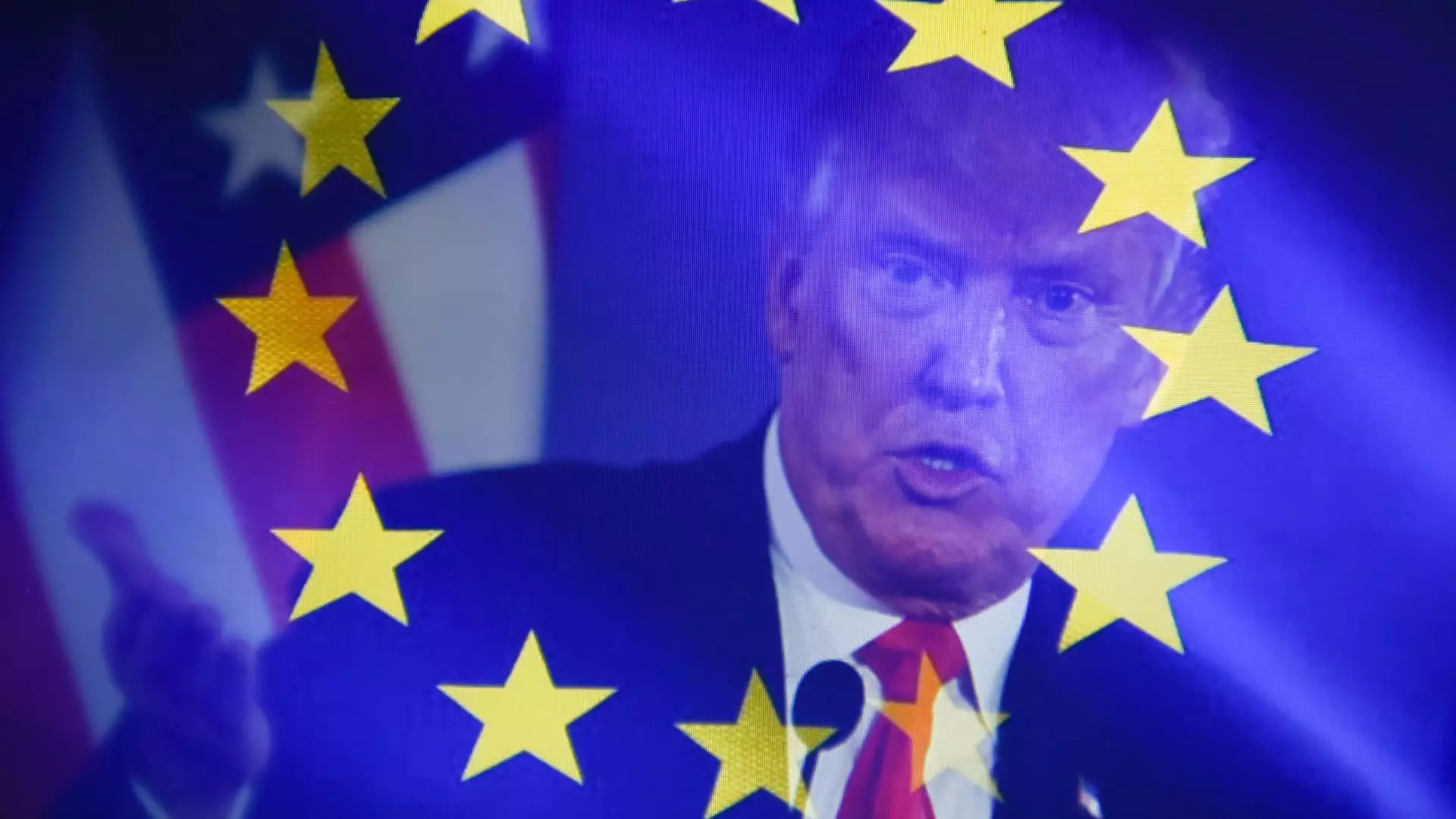The world of international trade is a high-stakes poker game, and recently, it has been difficult to ignore the tension simmering between the European Union and the United States. The decision by the EU to pause the implementation of retaliatory tariffs on a range of U.S. goods for 90 days, as announced by European Commission President Ursula von der Leyen, reflects a precarious diplomatic balancing act. This temporary halt comes on the heels of the White House’s own decision to ease tariffs on imports from most trade partners, which is indicative of the geopolitical chess match unfolding in real time.
The tariffs, originally positioned as measures to protect American industries, were initially set at a steep 25% on steel and aluminum. The ramifications of such actions are already evident, with trade partners scrambling to formulate responses. Retaliatory tariffs on U.S. goods were a clear response to what the EU considered unfair trade practices, yet the nuanced decision to pause speaks volumes about a willingness to negotiate—though it may also illustrate vulnerability. “We want to give negotiations a chance,” von der Leyen stated, which may be interpreted as both a hopeful message and a sign of political weakness. The pause exemplifies a reluctance to escalate hostilities further.
Negotiations: A Question of Fair Play
What truly stands out in this scenario is the question surrounding the sincerity of negotiations. While the EU prefers to frame tariffs as a means of engagement, it cannot fully obscure the perception that trade negotiations under duress are inherently lopsided. The mood is cautious, oscillating between optimism and skepticism. The promise of “satisfactory negotiations” lingers like an unwelcomed guest, prompting one to wonder if either party is genuinely ready to compromise. President Trump’s revelation of a 10% tariff on imports served as a temporary reprieve for finance markets, leading to an uplifting rally in stock prices, but such volatile swings only showcase the fragility of this truce.
A trade relationship that had once been robust is now peppered with accusations of unfair practices. Trump’s assertion that the European Union treats the U.S. “very unfairly” illustrates not just a perceived imbalance but also shows the underlying tension threatening the stability of trade agreements. While negotiations are being conducted with an air of positivity, one cannot occur without scrutinizing the underlying motives at play. Are these negotiations truly aimed at facilitating fairer trade, or are they merely a strategic gamble to underline political strength?
The Path Forward: A New Strategy
In light of these developments, it is crucial for the EU to expand its trade relationships beyond the U.S., seeking partnerships that don’t hinge on an unpredictable political climate. This strategy of diversification should not only mitigate the impacts of unilateral tariffs but can also lead to more stable future transactions. The EU’s drive to build and fortify networks which reduce dependencies on any one nation demonstrates a robust understanding of the evolving global marketplace.
Moreover, von der Leyen’s call for a “zero-for-zero tariff agreement” reflects a forward-thinking approach. It acknowledges the pain points felt by consumers and businesses alike in both regions. With tariffs regarded as taxes that inflict detrimental effects on all involved, the path towards a fairer, more equitable trading system could offer a refreshing change. However, for this vision to materialize, it will require unwavering commitment and genuine cooperation from both sides, particularly in light of increasingly protectionist sentiments worldwide.
A Fragile Hope Amidst Trade Fractures
As the 90-day pause unfolds, the world is left to ponder whether this moment signals a turning tide or merely a temporary ceasefire in a broader conflict. Tariffs have far-reaching implications that extend well beyond mere trade balances; they symbolize broader geopolitical relations. The clock is ticking in this high-stakes game of economic diplomacy, and every move will be met with speculation.
The European Union has the opportunity to reshape its trade landscape in response to U.S. tariffs, but this is not merely about counteracting one nation’s policies; it’s about redefining international trade norms moving forward. There lies an imperative opportunity for cooperation, but whether both parties can set aside their differences for the greater good remains to be seen. The stakes, indeed, could not be higher.


Leave a Reply